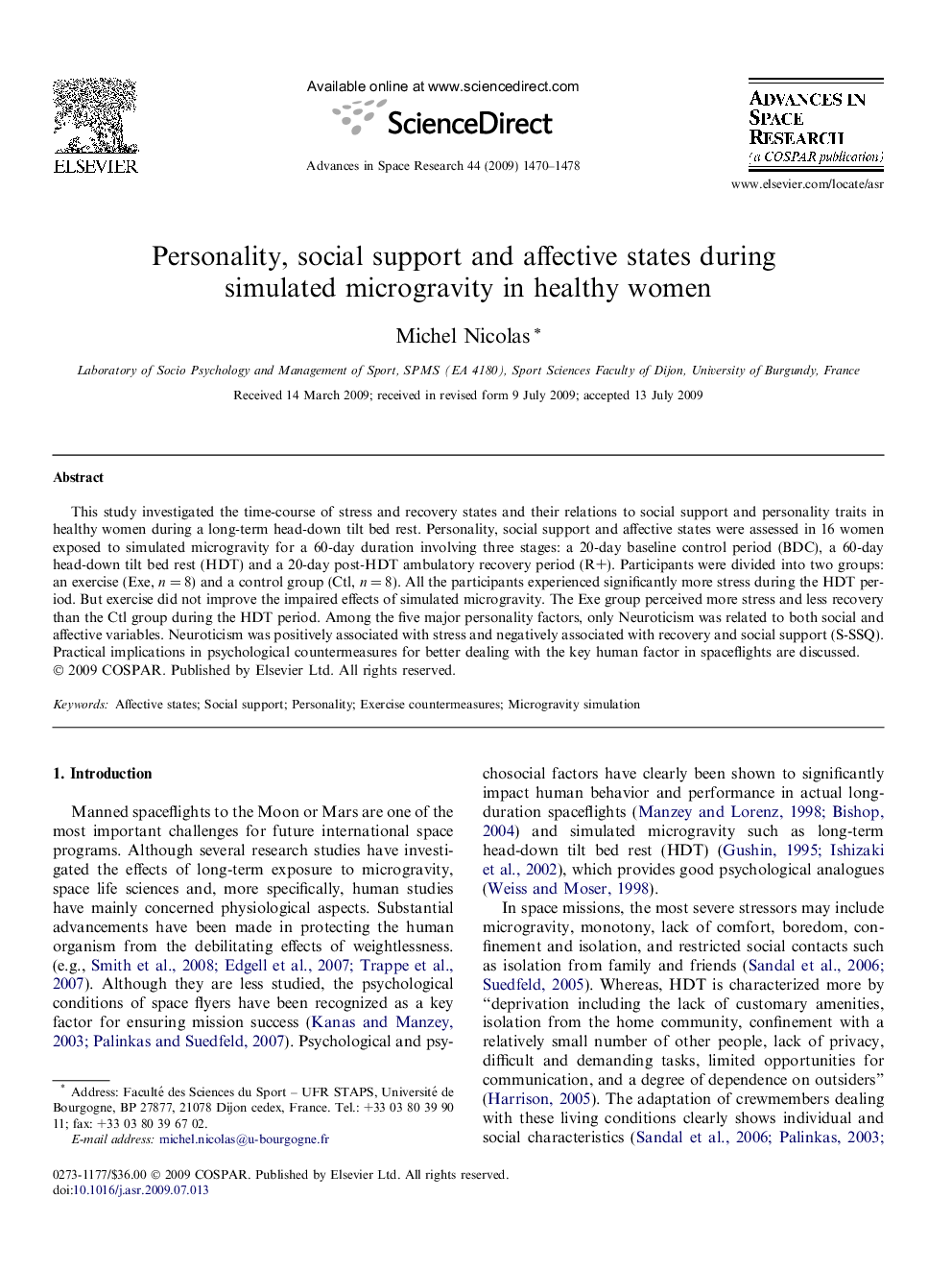| Article ID | Journal | Published Year | Pages | File Type |
|---|---|---|---|---|
| 1766761 | Advances in Space Research | 2009 | 9 Pages |
This study investigated the time-course of stress and recovery states and their relations to social support and personality traits in healthy women during a long-term head-down tilt bed rest. Personality, social support and affective states were assessed in 16 women exposed to simulated microgravity for a 60-day duration involving three stages: a 20-day baseline control period (BDC), a 60-day head-down tilt bed rest (HDT) and a 20-day post-HDT ambulatory recovery period (R+). Participants were divided into two groups: an exercise (Exe, n = 8) and a control group (Ctl, n = 8). All the participants experienced significantly more stress during the HDT period. But exercise did not improve the impaired effects of simulated microgravity. The Exe group perceived more stress and less recovery than the Ctl group during the HDT period. Among the five major personality factors, only Neuroticism was related to both social and affective variables. Neuroticism was positively associated with stress and negatively associated with recovery and social support (S-SSQ). Practical implications in psychological countermeasures for better dealing with the key human factor in spaceflights are discussed.
